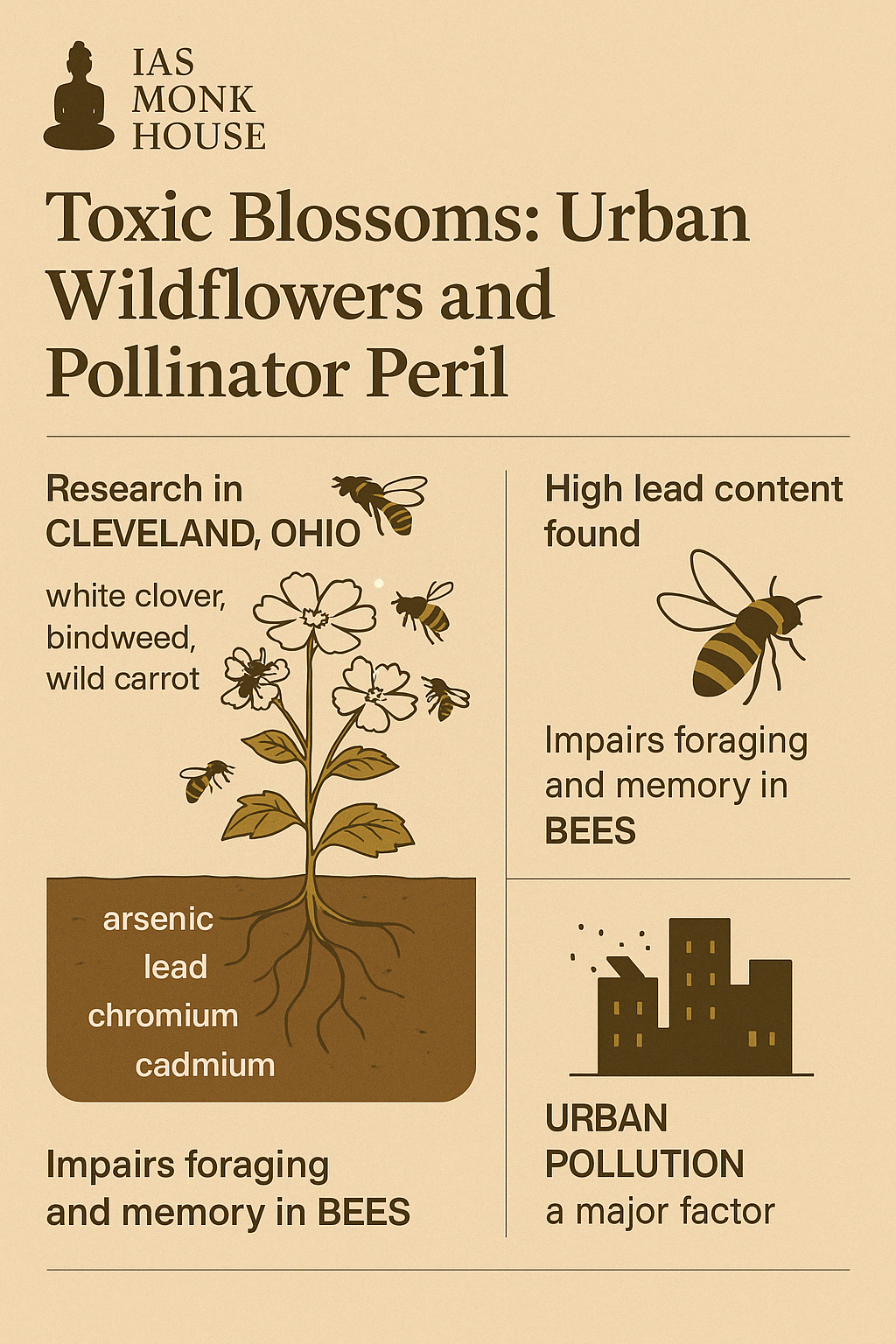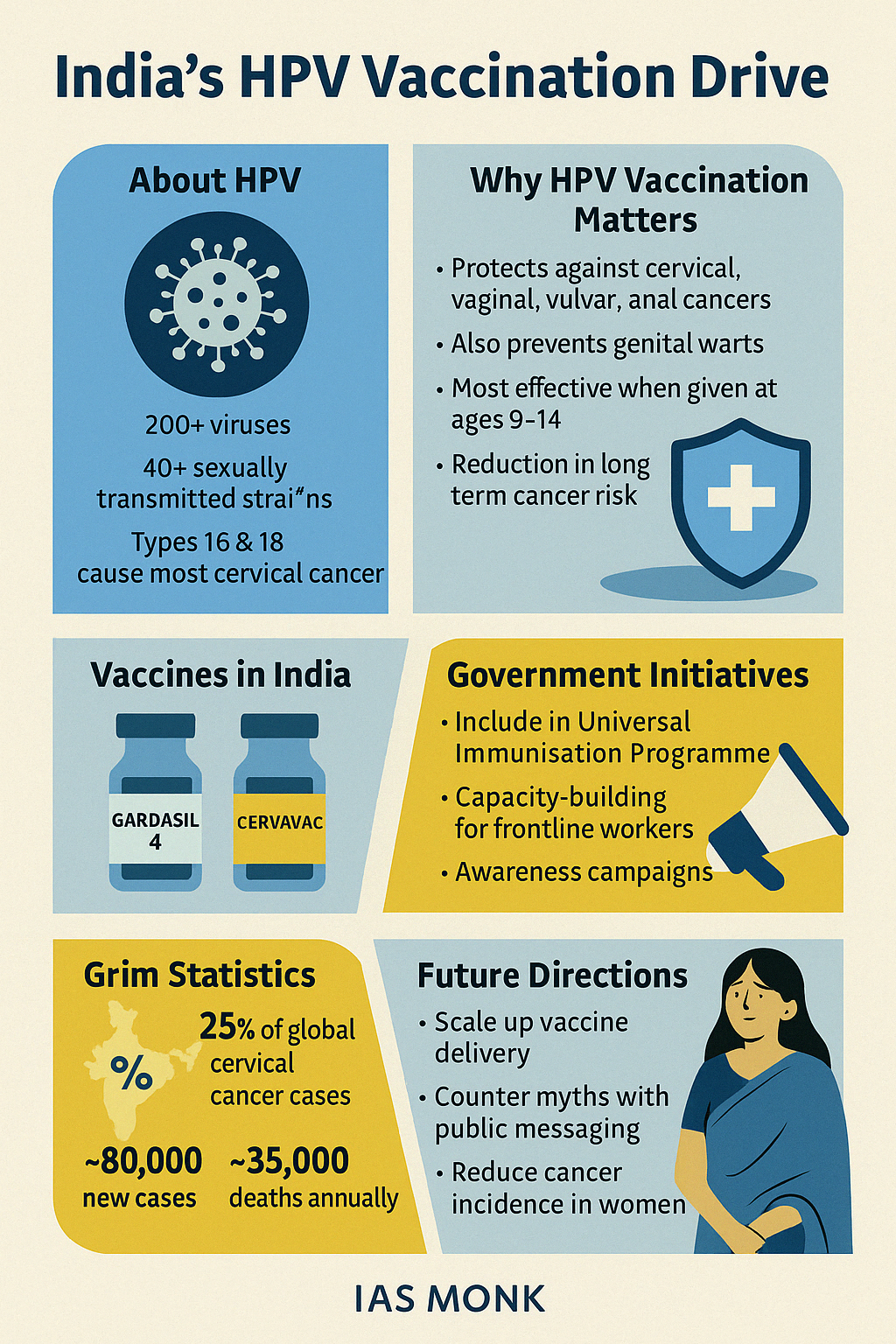
005-Apr 19, 2025
“Poison in the Petals: When Urban Beauty Hides a Bitter Truth”

🐝 Thematic Focus
Category: Environment | Pollution | Urban Biodiversity
“Toxic Blossoms: Urban Wildflowers and Pollinator Peril”.
📌 Key Highlights
- The Silent Absorbers:
- Common wildflowers like white clover, bindweed, and wild carrot in cities absorb toxic metals like lead, cadmium, arsenic, and chromium.
- Study by University of Cambridge, based on Cleveland, Ohio, an old industrial hub.
- Danger to Pollinators:
- Bees feeding on toxic nectar experience impaired memory and learning.
- This disrupts foraging, impacts hive health, and endangers crop pollination worldwide.
- Urban Soil: A Hidden Risk:
- Soils in old cities often contaminated by industry, cement dust, or mining.
- Chicory was found with highest metal concentrations in the study.
- Call to Action:
- Test soil before planting wildflowers in urban areas.
- If contaminated, consider soil remediation or phytoremediation.
- Awareness of land history is key to safe greening of cities.
🧠 Concept Explainer
Why This Matters Beyond Bees
Cities bloom with wildflowers not just for beauty but for biodiversity. But when soil remembers its polluted past, the beauty can turn bitter. What feeds bees today could threaten ecosystems tomorrow. This study is a reminder: green isn’t always clean — unless the roots are safe.
📜 GS Paper Mapping
- GS Paper III:
- Environment: Pollution, Biodiversity, Urban Ecology
- Science & Technology: Environmental Health, Pollinator Impact
- Disaster Management: Urban Environmental Risks
✍️ Essay Paper Mapping
- “In the Garden of Progress: What We Sow, Bees Must Reap”
- “Pollinators and Poison: A Quiet Ecological Emergency”
- “Urban Renewal Begins from Below: Soil Health and Sustainability”
💭 A Thought Spark — by IAS Monk
“A flower may bloom in silence, but what it holds beneath — can echo loudly through the wings of a bee.”


















